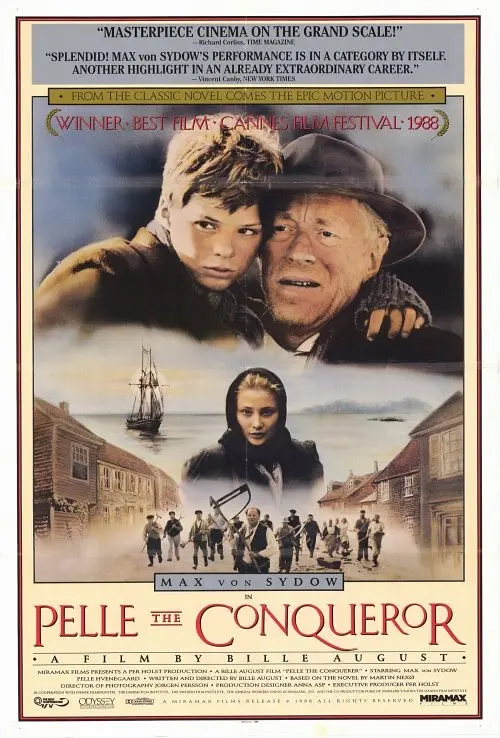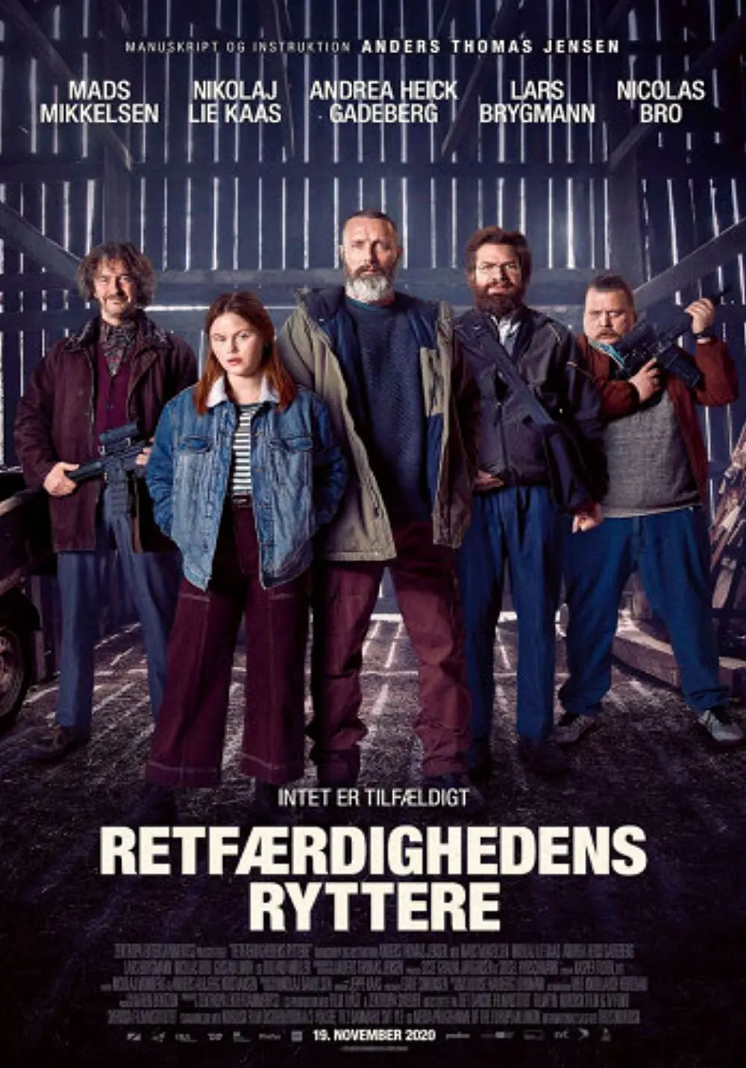Pelle erövraren The freedom of a person

A large wooden ship with a high mast slowly emerges from the fog – this is the first shot of the film “Pere the Conqueror”. It is the same as Friedrich’s “Fog”. Only in the latter, there is still a thin light above the picture, as if to reveal the secrets and hopes of another world. But there is no light in the film: only the ship coming from the heavy sea fog – with its unknowable heavy past; only the fog that engulfs the ship – foretelling its unhoped-for future. Rosenblum says that Friedrich painted the divinity of the landscape, because it shows you that there is something between the low world of man and the mysterious heights of the sky. Yet this foggy scene at the beginning of “Pere the Conqueror” plunges father and son into a land forgotten by God – they recite the Bible aloud with immense devotion, yet God cannot hear their cries.
Lars is an old widower who has moved from Sweden to Denmark with his young son, Per, to make a living. Lars was Per’s biological father, giving him a flexible body that allowed him to run, dance, and “move his ears” to answer his teacher’s questions. Lars is Pere’s father in life, giving him the care of food, drink, and food, so that he will not cry all night because of the loss of his mother. Lars is also Pell’s emotional father, giving him the strongest love in his straitened life, a brand new white knife, a handful of wild strawberries from home, a bowl of stolen fresh milk, a sour but truly surprising and sweet birthday. Yet Lars’ tall body cannot support a world with dignity for Pell. His hesitation, timidity, his patience and rebellion let young Pell experience defeat and humiliation again and again. His large fist could only make a muffled sound on the stake, but he did not have the courage to actually smash the oppressor’s head to avenge his son’s death. He gave Pell so many illusory and beautiful visions of the future, but these exciting words were again and again pierced by reality. He is so cowardly, yet so righteous. He’s so confined, yet so generous. You cannot accuse such an old man, such a father. Yes, even when he turned to sob and flies fell all over his crooked back, you still couldn’t have any half-hearted contempt for him. “I’m old, I really can’t afford to fold.” This is the last words of a father to his son who is about to leave him for a long journey, so true, so real, so heartbreaking.
The father gave him all he could, and yet only so much. Luckily, there was still Eric on the farm – the young man who drank hard liquor, played the accordion, and threatened to travel the world in the spring became the spiritual pillar of young Per’s heart. “When the snow melts in the spring, we can leave here. Take a big ship across the whole ocean, to America, to China, then Australia, Spain Little Pell used his beloved knife to carve a ship on a pillar, and day and night he looked forward to the day when Eric would take him across the ocean. Eric provoked the foreman again and again, dissatisfied with the miserable food of herring all day, dissatisfied with the heavy work without rest, dissatisfied with the Christmas without music and laughter. Erik made up for Lars’ spiritual shortcomings by daring to shake his fist at injustice, to speak out against his vicious master, and even to take up a pitchfork and lead the crowd in open rebellion – he dared to put into practice all the ideals he thought were right. Erik became Per’s spiritual father, not to shield him but to guide him. His passion for life and desire for freedom infected Pell, who also had a dream in mind.
Although Erik was eventually stoned into dementia and spent his days at the mercy of the foreman in the horse corral. However, the seed of freedom he planted in Pell’s heart took root and sprouted. And this seemingly faint hope in the young friend Luther turned into a joyful reality. Luther is originally Pell’s best friend, but as both an orphan and a handicapped person, Luther suffers only discrimination and humiliation in the small, isolated and depressed village. He is determined to get out, even if it means playing a clown in a circus. Pell once did not believe in any dream about the circus, but when he saw with his own eyes the long-nosed Luther on the stage of the prodigal circus in the marketplace, he laughed so happily. Not only because he had found a friend, but also because he saw hope – a hope that even if he fell into a desperate situation, he could still be free.
The attraction of freedom to Yu Peier is so strong and complete. And it was about his freedom alone – without the inspiration of a trumpet, without the encouragement of companions, without even a clear enemy. It was just a man who chose life seriously and walked alone in silence. This freedom is a dark fire in his heart, so that his thin body can have such a tough endurance, resisting hard work, resisting the sea of ice, resisting violence, resisting humiliation. When Eric was forced away by the foreman, Pell pulled off the decent clothes and hats that he had just put on, refusing to accept the role of the new supervisor without any hesitation. Because at that moment, Eric’s tragedy suddenly woke up his nerves – stay here for life will not have a way out. Whether you are promoted to supervisor or foreman, or even become a wealthy owner, you will at best be confined to this small farm yard, with a few horses, a few cows, a few fat maids to live this lifeless life forever. So Pere went away. Leaving his elderly father behind, alone on the road.
The camera slowly pulled back, leaving only a small Pell stumbling on the vast coastline, looking, moving forward, as if the original desperate to leave Luther, never look back to run. Mel Gibson once shouted the words “Freedom” at the end of “Braveheart”, which is the leader’s uplifting for the freedom of a nation, just like the final flourish of the drums. Pell leaves without a sound, treks with difficulty and patience, and searches for freedom for his own life and dignity, just like the introverted and lasting bass drum beat, which is deeper and more down-to-earth. In the original novel, Perle eventually becomes a trade union leader in Denmark. The film, however, keeps everything at a more poetic and ideal boundary. “Go to America, go to China, then Australia, Spain”, no one knows whether the life going out is necessarily happy and fulfilling, no one can say whether those strange places are free from oppression and cruelty. However, we see that the snow is melting, the sea has been released from the ice, and another spring is descending on the mountain road that runs through the ravine.




